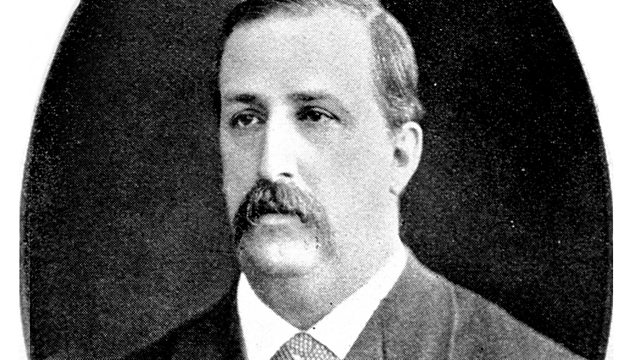
Episode 1
Donald Macleod explores the conflicts Borodin faced between his twin careers - as scientist and musician - plus the origins of his First Symphony.
His melodies were as brilliant and beguiling as his scientific discoveries. Alexander Borodin (1833-1887) was one of history's great polymaths - who combined a career as one of Russia's great research chemists with an equally dazzling creative life as one of the 19th century's most enchanting composers. Happily married, loved by his friends and also a noted writer, philanthropist and linguist, Borodin's life was high on talent, short on crisis - and full of extraordinary, bewitching music.
No-one could write a tune like Borodin - and didn't his peers know it. Throughout Borodin's life, Rimsky-Korsakov and others nagged on and on at him for his 'misplaced' devotion to science, criticised his running quite literally from piano to laboratory, urged him to write more than he possibly was able. Never mind that his scientist colleagues were advising him to do precisely the opposite...
By the time of Borodin's early death aged 54 (he expired of a heart attack merrily dancing the night away at a ball), he'd completed a mere few dozen works - yet almost without exception they're some of the most charming works of the Romantic era - brimming with melodic genius and passion for his native Russia. Such was the affection in which Borodin was held, his friends rallied round to reconstruct and complete many of his unfinished compositions after his death, ensuring his genius would live on forever.
This week, Donald Macleod celebrates the life and work of the "Talented Dr Borodin", featuring all three symphonies, "In The Steppes Of Steppes Of Central Asia" and a host of chamber works, including his Second String Quartet (featuring the famous "Nocturne"). Tuesday's episode gives a rare airing to all sixteen of Borodin's solo songs - "a revelation", in the presenter's words - whilst on Thursday we'll hear extended excerpts from the Second Act of Borodin's operatic masterpiece, Prince Igor, including the famous "Polovtsian Dances".
---
Donald Macleod explores the brilliant, happy life of Alexander Borodin - who combined equally dazzling careers in music and chemistry, as well as being a noted linguist, writer and philanthropist. In the first episode of the series he explores the early conflicts Borodin faced between his twin careers - often having to quite literally run from laboratory to piano - as well as the origins of the composer's First Symphony.
Last on
More episodes
Previous
You are at the first episode
Music Played
-
![]()
Alexander Borodin
arr. Robert Wright & George Forrest: Kismet
Performer: Original Broadway Cast Orchestra Performer: Adrian Louis
- NAXOS 8120847.
- 1.
-
![]()
Alexander Borodin
Polka "Helene" in D Minor for piano four hands (1843)
Performer: Marco Rapetti (Piano) Performer: Daniela De Santis (piano)
- BRILLIANT 93894.
- 30.
-
![]()
Alexander Borodin
Trio for 2 violins and cello on a Russian Song "What Have I Done To Hurt You?"
Performer: Moscow Trio
-
![]()
Alexander Borodin
Cello Sonata in B Minor (1860)
Performer: Otto Kertesz (cello) Performer: Ilona Prunyi (piano)
- MARCO POLO 8223172.
- 1.
-
![]()
Alexander Borodin
Symphony no.1 in E Flat Major (1862-7)
Performer: Gothenburg Symphony Orchestra Performer: Neemi Järvi
- DEUTSCHE GRAMMOPHON 4357572.
- 1 to 4.
Broadcasts
- Mon 25 Jan 2010 12:00���˿��� Radio 3
- Mon 25 Jan 2010 22:00���˿��� Radio 3
Beethoven Unleashed – the box set
What was really wrong with Beethoven?
Composers A to Z
Who knew? Five eye-opening stories from Composer of the Week
Five reasons why we love Parry's Jerusalem
What is the strange power of Jerusalem which makes strong men weep?
A man out of time – why Parry's music and ideas were at odds with his image...
The composer of Jerusalem was very far from the conservative figure his image suggests.
Composer Help Page
Find resources and contacts for composers from within the classical music industry.





